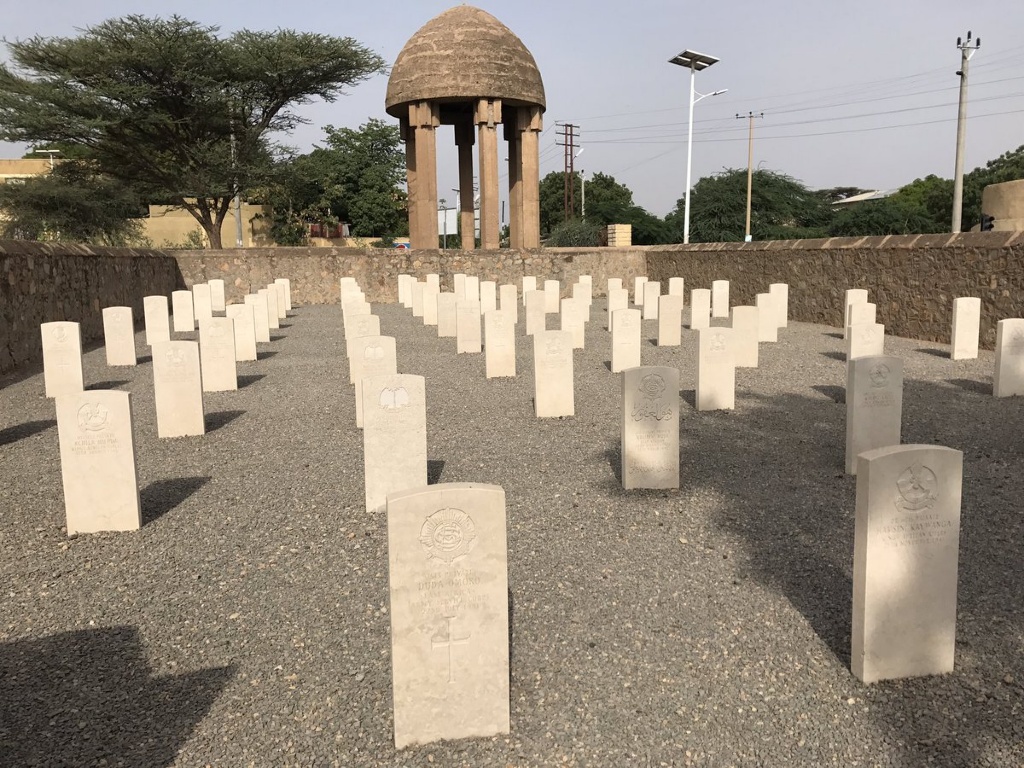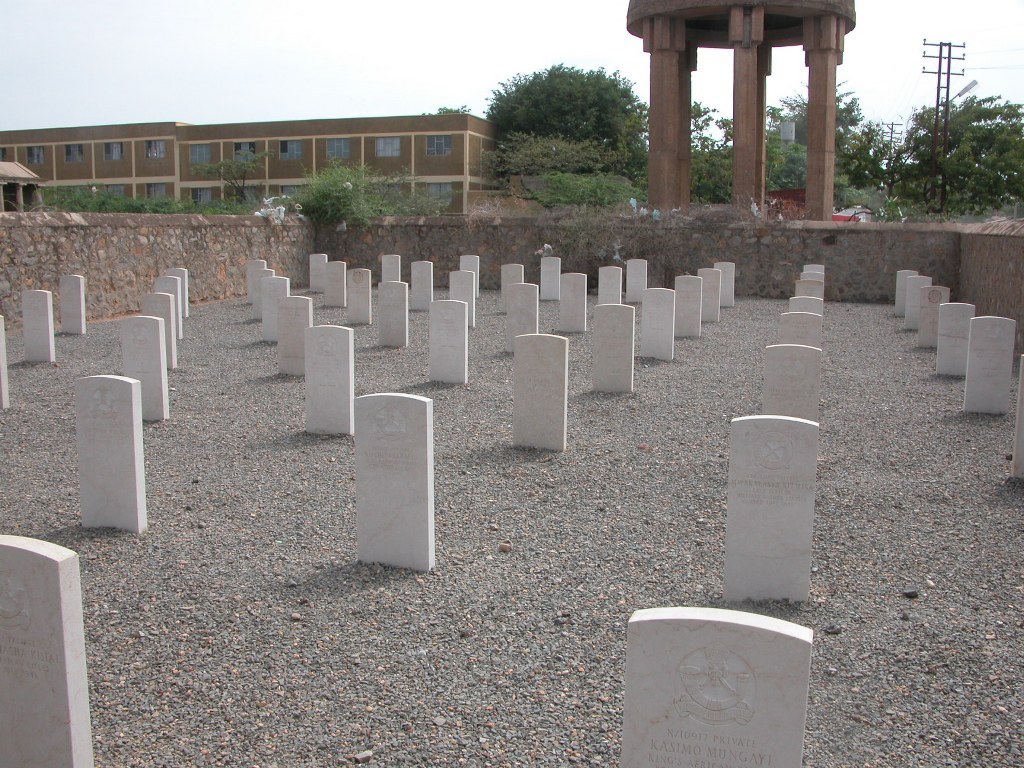Dire Dawa African War Cemetery
- Country Ethiopia
- Total identified casualties 68 Find these casualties
- Identified casualties from Second World War
- GPS Coordinates Latitude: 9.5975, Longitude: 41.86597
Location information
Take the road from the airport to Dire Dawa. Go past the Ministry of Mining and Oil Exploration and St. Mary's church on the right. Cross the railway track, then turn left at end of central reservation on to the road with Catholic Cemetery on right hand side and Public Court compound on left. Take the next right and the Commission cemetery is immediately on right behind large metal gates.
Visiting information
Dire Dawa African War Cemetery is open Monday to Thursday: 08.00 to 17.30, Friday to Saturday: 08.00 to 16.30. Closed on Sunday. Wheelchair access possible via main entrance.
For further information regarding wheelchair access, please contact our enquiries department on telephone number 01628 634221.
History information
When Italy entered the war in June 1940, Ethiopia, which had been part of the Italian East African empire since 1936, became a threat to British positions in Egypt and the link by sea to the Far East and Australasia.
Commonwealth forces took up defensive positions on Ethiopia's borders with Sudan to the west and Kenya to the south, and in mid-December 1940, after initial skirmishes with the Italians, the first of a series of offensives was launched from Kenya. A strike east into Italian Somaliland secured the coastal port of Mogadishu in February 1941 which made possible an advance into the heart of Ethiopia. Within a month Harar had been taken and Addis Ababa, the Ethiopian capital, was captured early in April, allowing the deposed Emperor Heile Selassie to return in May.
Diminished Italian forces continued to withdraw north and the East African campaign in Ethiopia was not concluded until the end of November 1941 with the surrender of the last concentration of Italian forces at Gondar.
Dire Dawa African War Cemetery contains 70 Commonwealth burials of the Second World War, five of which are unidentified. The are also three special memorials to airmen of the Royal Air Force who were originally buried in the civil cemetery at Dire Dawa but whose graves are now lost.



